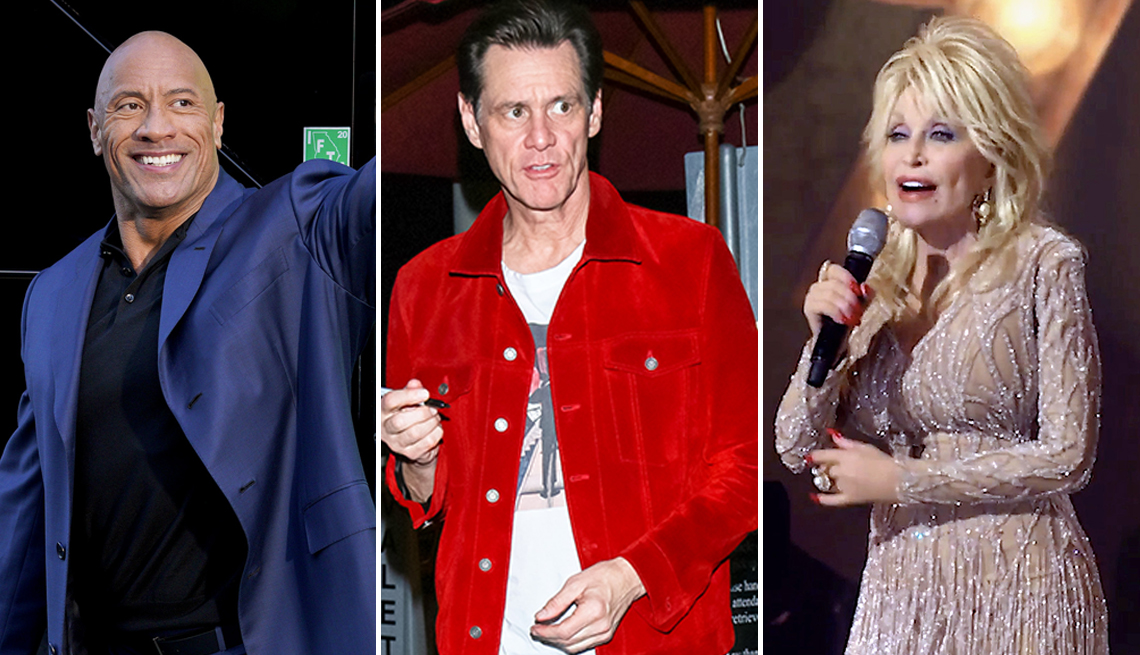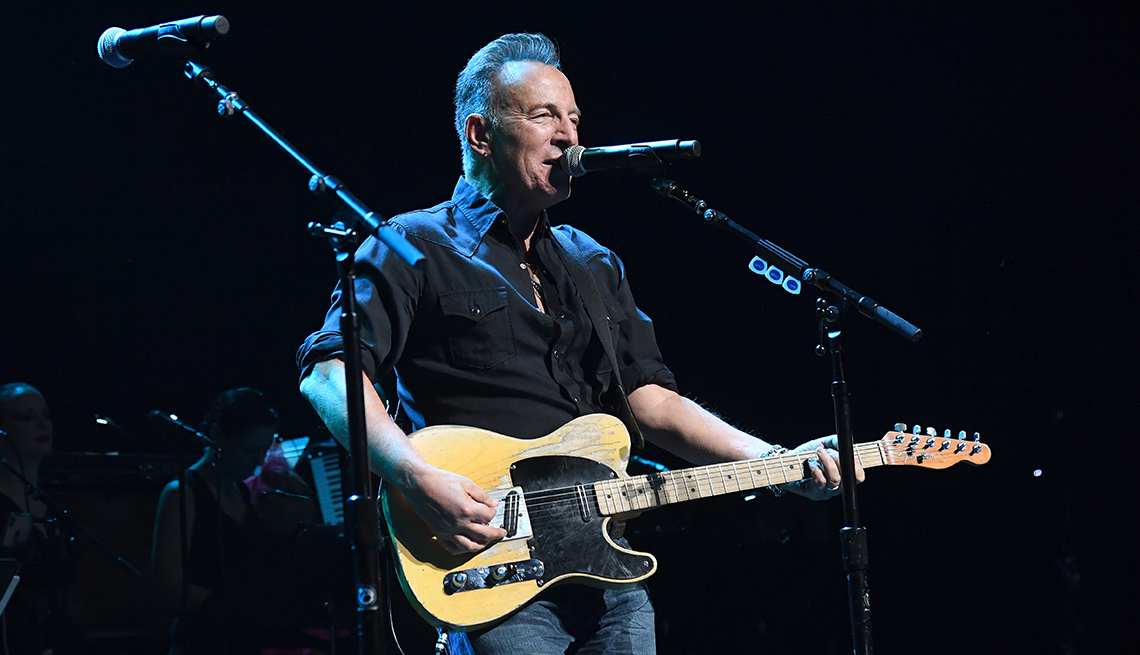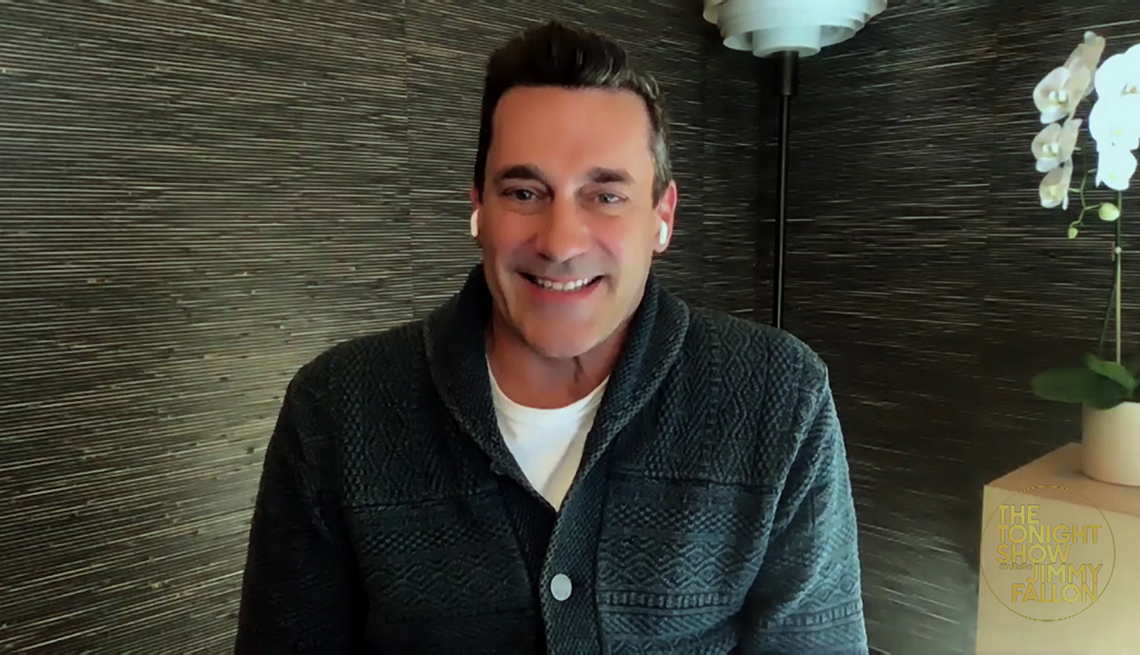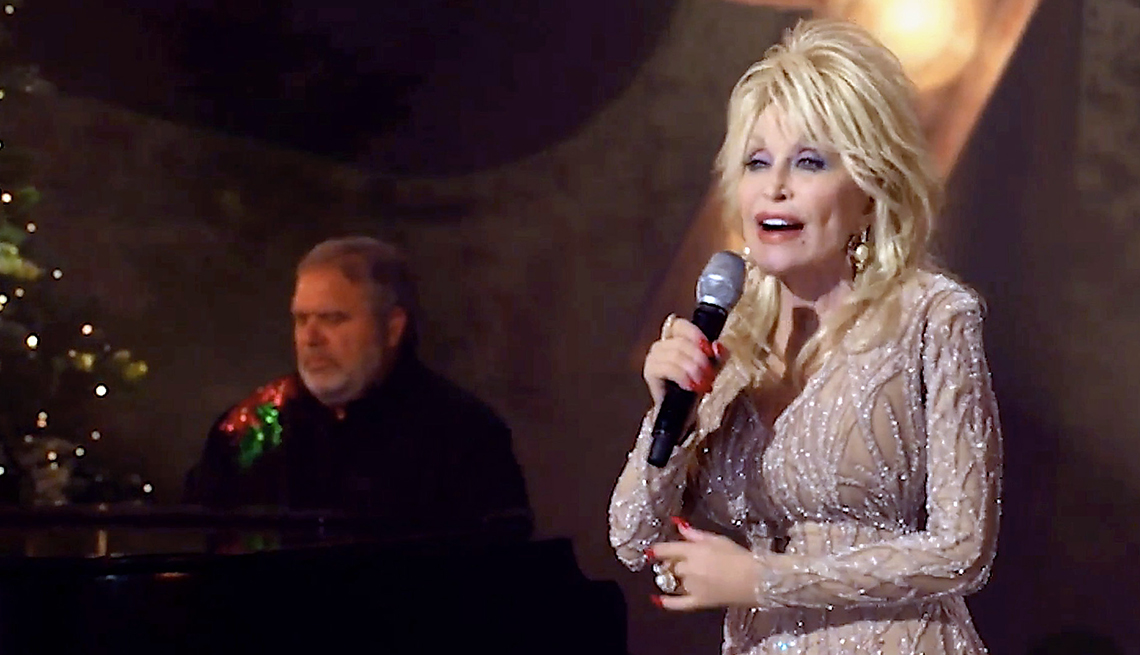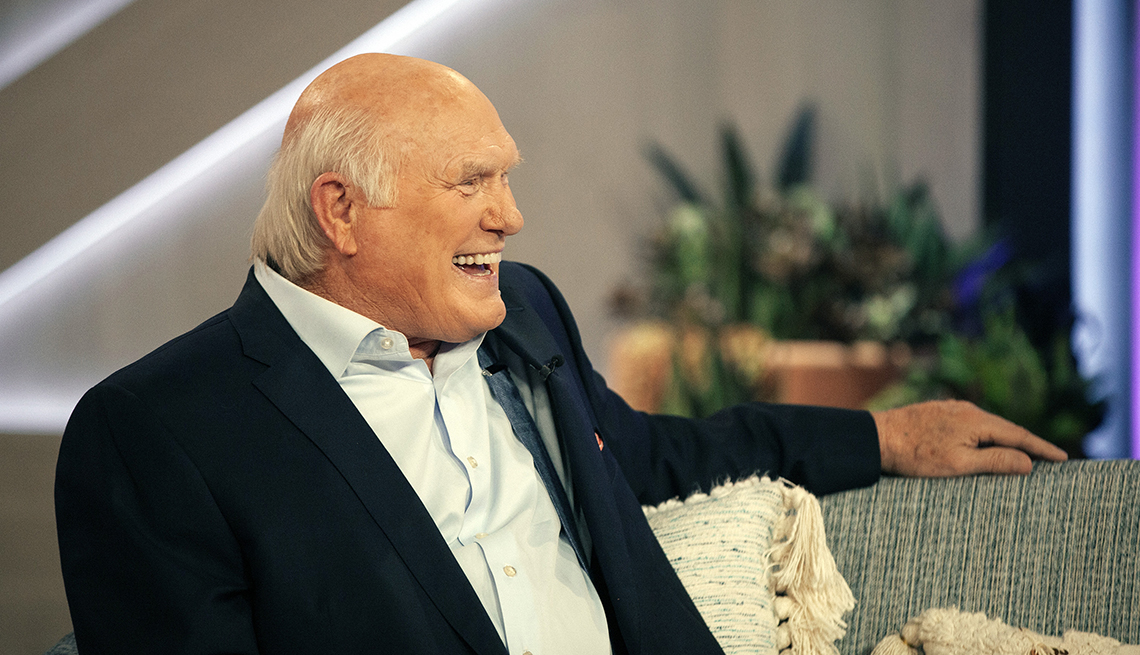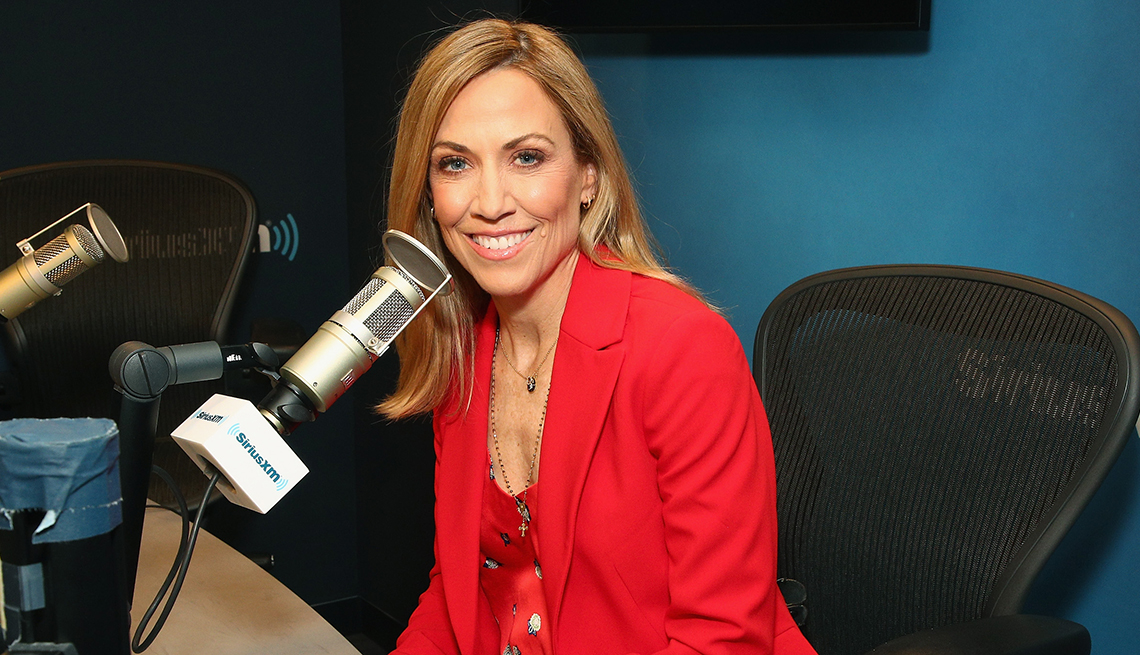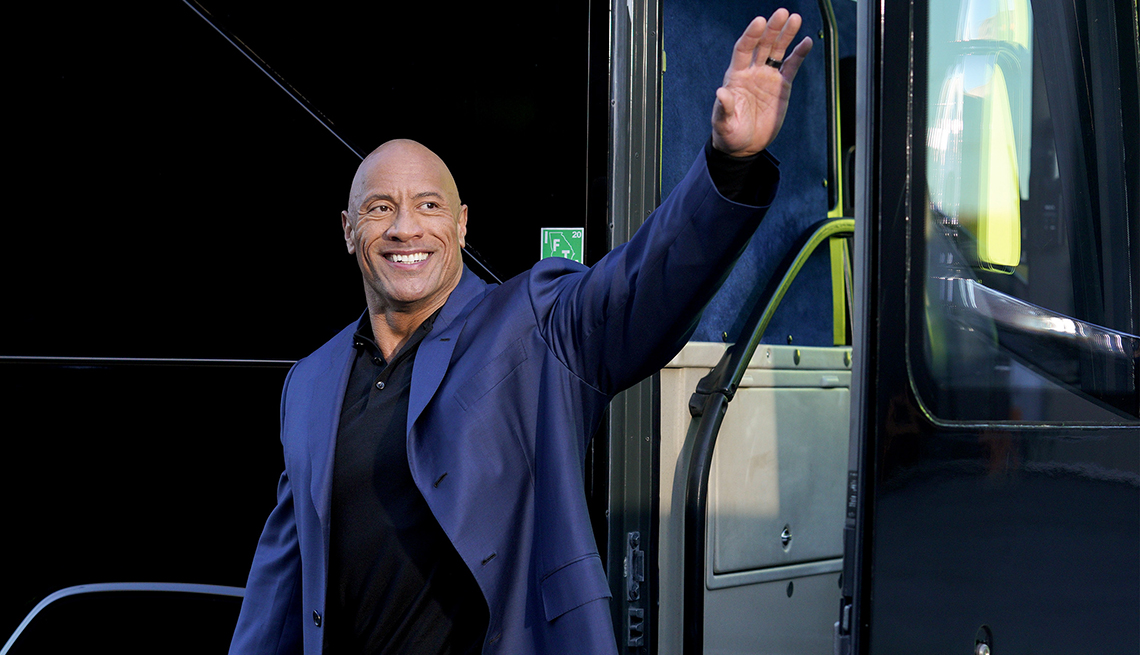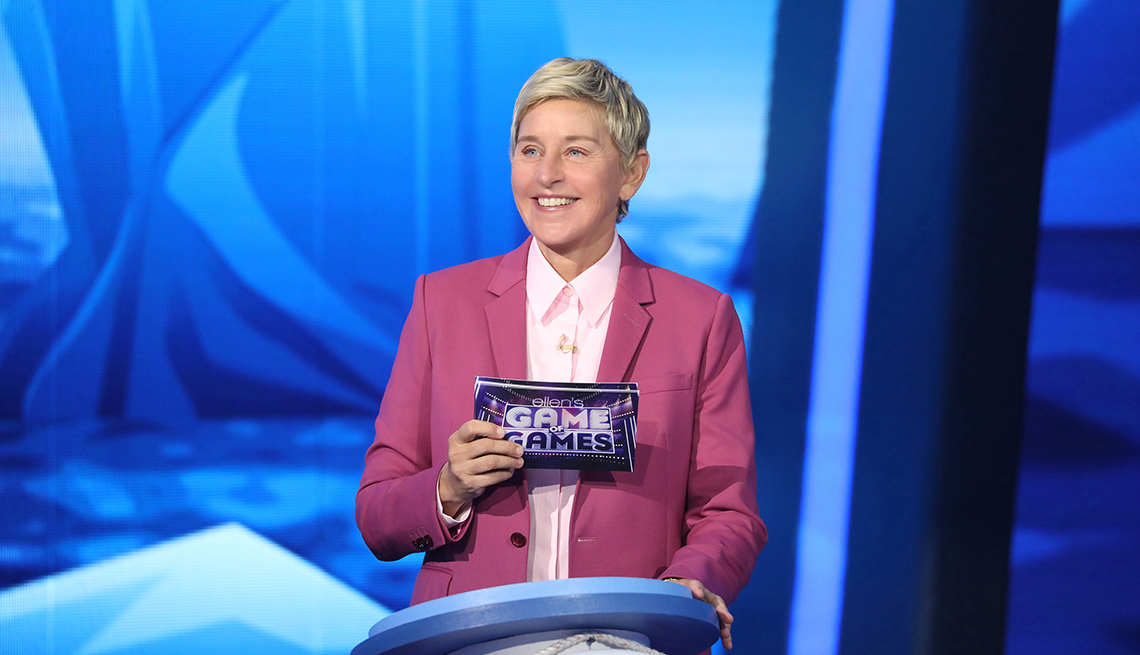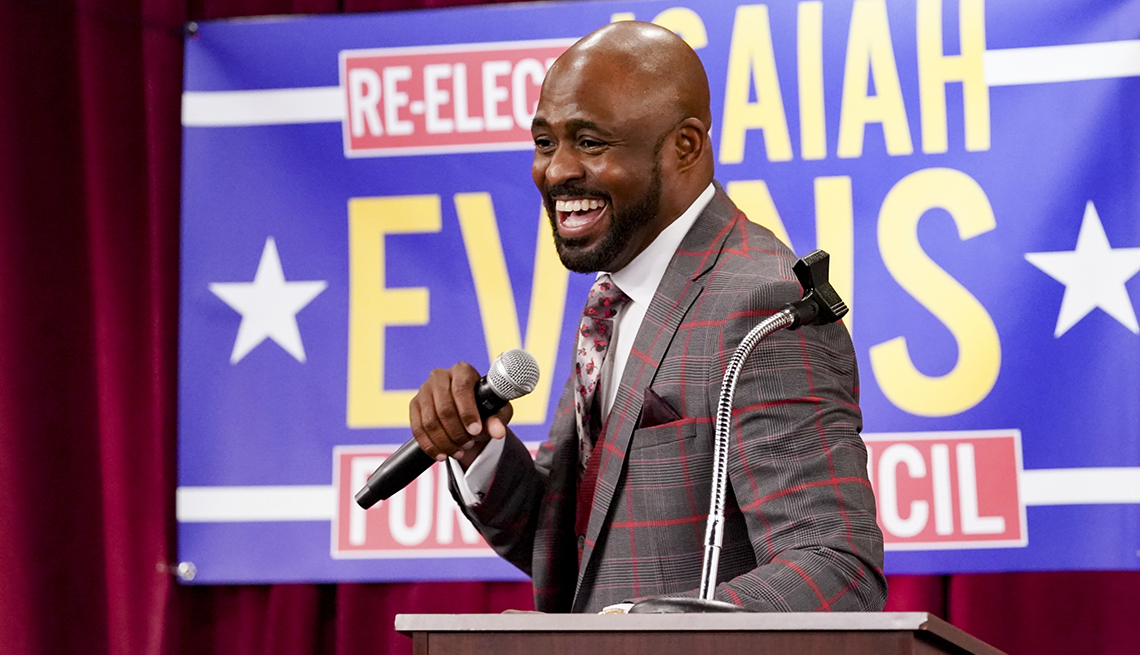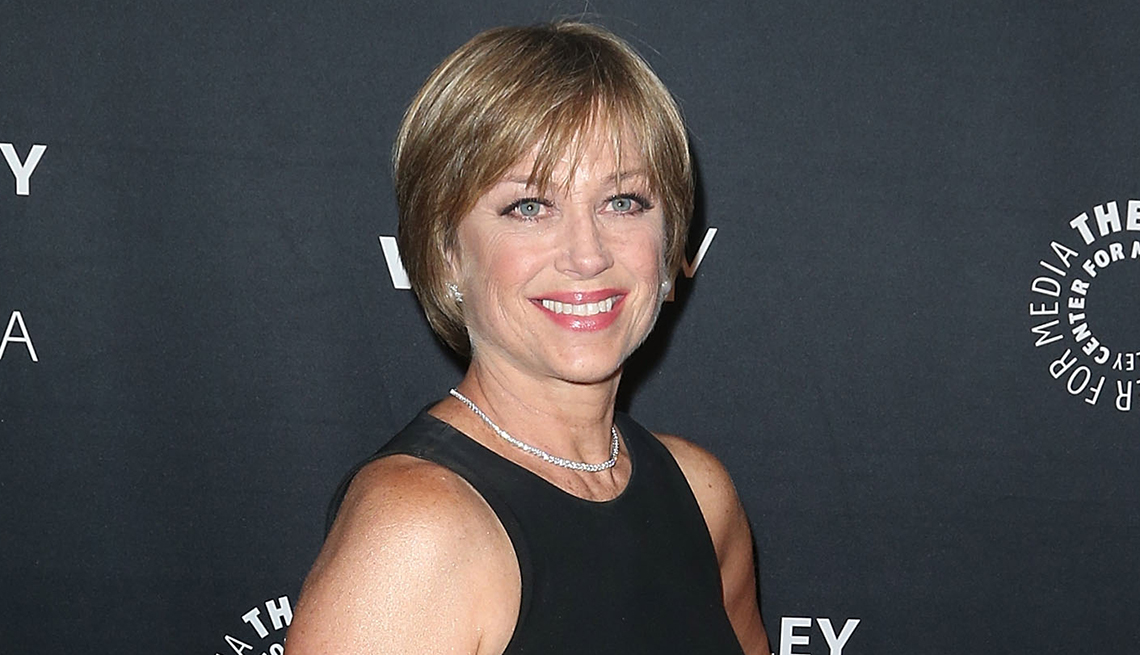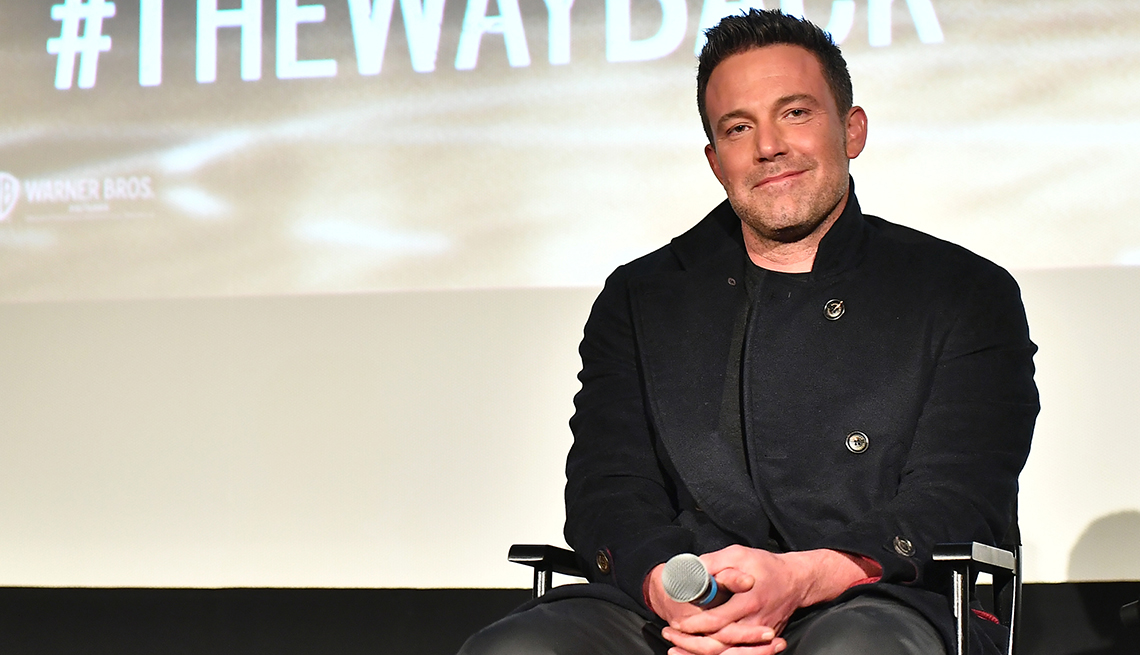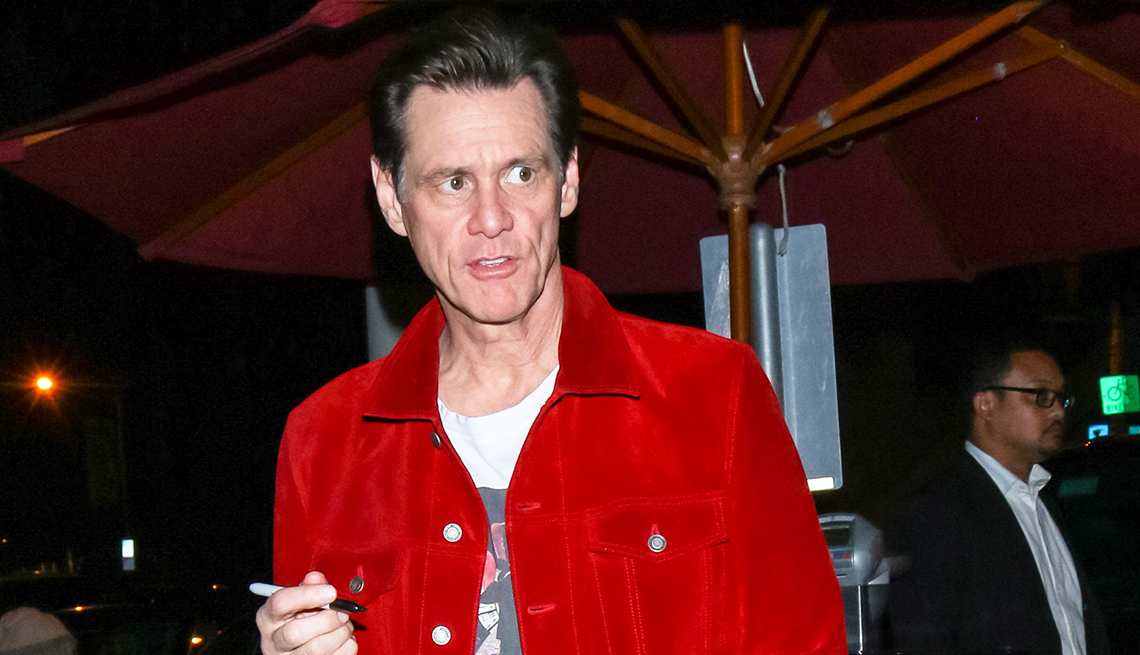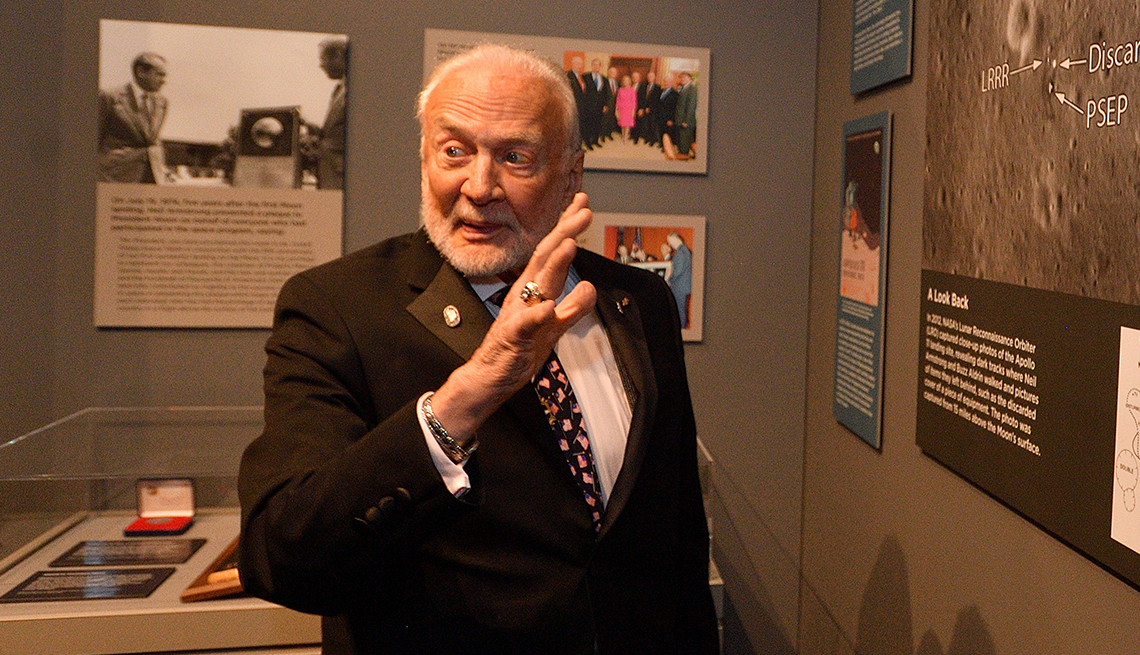12 Celebrities Who've Had Depression
Dolly Parton, Jim Carrey, Bruce Springsteen and more share their stories, encourage others to seek help
by Barbara Stepko, AARP, February 24, 2021
En español | Depression affects about 16 million adults in the U.S. every year and 1 in 6 adults at some point in their lives, according to the Centers for Disease Control and Prevention (CDC). And older people are even more at risk, the CDC says, but many don’t seek treatment. A major reason for this cited by experts: fear of being stigmatized.
“Decades ago, we used to whisper the word cancer, and depression was regarded in much the same way,” says John Greden, M.D., founder and executive director of the University of Michigan Comprehensive Depression Center in Ann Arbor. “But it’s time to put that stigma to rest. Depression is nothing to be ashamed of — that’s an important message to send.” Indeed, today’s celebrities are doing just that, speaking candidly about their own experiences in dealing with the disorder, and encouraging others to seek out the help they need.
- |
- Photos
-
- 1 of
PHOTO BY: Kevin Mazur/Getty Images
Bruce Springsteen
The Jersey-born rocker, whose gritty lyrics capture the human condition, has been open about his own inner struggles. Springsteen, 71, has had two breakdowns, one of which occurred when he was in his 60s. In 2019, the musician described the episodes to CBS Sunday Morning. “It’s like this thing that engulfs you,” he said. “I got to where I didn’t want to get out of bed.” Springsteen credits his wife Patti Scialfa’s “strength and the love she had” in helping him get through the tough times. He has also benefited from therapy, he told AARP The Magazine last year (“the talking cure — it works”) and medication. “All I do know is as we age, the weight of our unsorted baggage becomes heavier ... much heavier,” said Springsteen in a 2018 interview with Esquire. “With each passing year, the price of our refusal to do that sorting rises higher and higher.”
-
- 2 of
PHOTO BY: NBC/Getty Images
Jon Hamm
The 49-year-old actor who portrayed the ultimate alpha male, Don Draper, on TV’s Mad Men, has made it his mission to destigmatize depression. Hamm discussed his struggles in a 2017 interview with InStyle, saying, “We live in a world where to admit anything negative about yourself is seen as a weakness, when it’s actually a strength. It’s not a weak move to say, ‘I need help.’” Therapy and medication have made a big difference, helping him through a number of mental health issues including depression, alcohol addiction and grief (he lost both of his parents at a young age). “Over the years, as I have gotten older and Western society has gotten a little more civilized and advanced,” Hamm told The Rake last year. “We have come closer to the fact that, yes, we have to check in with our mental health.”
-
- 3 of
PHOTO BY: 2020 Billboard Women In Music/Getty Images
Dolly Parton
The 75-year-old country singer, songwriter — and let’s face it, American icon — is known for her bubbly personality. But, noted Parton, to the Daily Mirror, “People are always saying to me I’m happy all the time. But nobody is happy all the time. I am a tender-hearted person and I feel everything to the nth degree. Every once in a while, I just feel, you know ... sad-hearted and melancholy.” Parton talked about a particularly rough patch in a 2019 episode of the podcast, Dolly Parton’s America, revealing that at one point, things had gotten so bad that she had actually contemplated suicide: “I got overweight and I was going through the change of life, I’d been going through a whole lot of family things, just the stress, the heartache. There was just several things going on at that time. I was just broken down.” Parton credits her strong faith for seeing her through and believes the down moments, ultimately, have made her stronger, noting, “After that I was twice the person I ever was.”
-
- 4 of
PHOTO BY: NBC/Getty Images
Terry Bradshaw
As the quarterback of the fearsome Pittsburgh Steelers, Terry Bradshaw, now 72, led his 1970’s team to four Super Bowl titles. But behind the good-natured smile and impressive statistics, he was hurting. In an interview on the website HopeToCope.com, Bradshaw talked about battling depression throughout his career, recounting a time when he broke down and cried on the field during a game. He began drinking heavily to cope and was reluctant to seek help — afraid of disappointing fans — but eventually relented. “First of all, you just got to look in the mirror and go, ‘Hey, look, I have some problems here. I need some help,’” said Bradshaw. “And then you’ve got to seek it out. When you start, you have to be brutally honest. It was not easy.” After being diagnosed with clinical depression, in 1999, he began taking medication — and started speaking out, including in his 2002 memoir Keep It Simple.
-
- 5 of
PHOTO BY: Astrid Stawiarz/Getty Images
Sheryl Crow
Rock-and-roller. Breast cancer survivor. Unabashed feminist. Add “mental health advocate” to the list. Crow, 59, has said that depression has been a part of her life since early in her career. “During some of those darkest days I’d hardly get out of bed and just let the phone ring and ring,” she revealed in a 2003 interview. She got things under control with therapy and antidepressants, but has since traded the medication for a fitness and meditation regimen. Life, indeed, is good, though Crow has admitted that depression “is constantly there. I just know how, at this point, to manage it.”
-
- 6 of
PHOTO BY: NBC/Getty Images
Dwayne Johnson
Hey, even a tough guy known as “the Rock” can hurt. In 2018, the actor and former WWE star talked about his lifelong struggles with depression, which started as a teenager. (He witnessed his mother’s suicide attempt at the tender age of 15.) “I reached a point where I didn’t want to do a thing or go anywhere,” he recalled. “I was crying constantly.” Johnson hit another low point, years later, when injuries destroyed his dream of playing pro football. “Struggle and pain is real,” he wrote in an Instagram post. “We’ve all been there on some level or another.” Johnson, 48, encouraged fans to open up about their struggles, tweeting, “Took me a long time to realize it but the key is not to be afraid to open up. Especially us dudes have a tendency to keep it in. You’re not alone.”
-
- 7 of
PHOTO BY: NBC/Getty Images
Ellen DeGeneres
It was 1997 when DeGeneres officially came out as gay in Time magazine. Decades later, the comedienne and talk show host discussed the difficult period she went through after her courageous announcement. “It took a while to shake off that judgment and the attacks I felt,” DeGeneres, 63, recounted to USA Today. “Once that was gone, I realized I didn’t have anything to be ashamed of anymore, that no matter what, I was fully honest with myself and that gave me confidence,” she said. “I think that helps with depression. Depression eats away at your confidence and you get lost in that, and forget that you’re enough just as you are.”
-
- 8 of
PHOTO BY: CBS/Getty Images
Wayne Brady
For years, the comedian and host of TV’s Let’s Make a Deal had a secret: He was battling depression. “People are like, ‘Wayne Brady’s always happy!’” he told ET. “No, I’m not. Because I’m human.” Brady, 48, went on to describe his experience: “You don’t want to move, you can’t move in the darkness. You’re like, ‘I am just going to sit right here and I want to wallow in this.’” He hit rock bottom on his 42nd birthday, experiencing a breakdown, and credits his former wife, Mandie Taketa, for helping him through the ordeal. Brady’s advice to those grappling with their own struggles: “If you’re not happy, you have to do something about it. Just to admit that you are feeling this way is a huge step.’”
-
- 9 of
PHOTO BY: Jimi Celeste/Getty Images
Dorothy Hamill
When she nabbed the gold medal at the 1976 Winter Olympics in Innsbruck, Austria, Dorothy Hamill, now 64, became America’s sweetheart. But achieving her lifelong goal led not to euphoria, but depression. “When you have that goal and you have that dream and it actually happens, you think that it would be a switch,” she told CBS News in 2007. “And I didn’t feel any different.” Years later, Hamill continued to struggle, as two divorces, a bitter custody battle and bankruptcy took a toll. “I would describe it as I’d be sitting there having a conversation. Everything would be fine and then I would just be in tears,” she said. Medication and therapy have helped, but, according to Hamill, the best medicine may be her first love: figure skating. “That sort of magical cool air and the wind at my face and music,” she said, “it just sort of always lifts me out of my funk.”
-
- 10 of
PHOTO BY: Paras Griffin/Getty Images
Ben Affleck
The 48-year-old actor has been a Hollywood A-lister since he nabbed his first of two Oscars for cowriting 1997’s Good Will Hunting. But depression doesn’t discriminate. Last year, Affleck revealed to ABC’s Diane Sawyer that he’s been struggling with depression since his 20s. “I get depressed. I take antidepressants,” says Affleck. “They’re very helpful to me.” Attending church — something he used to do because it was important to his ex-wife, actress Jennifer Garner — has also helped him find a kind of solace and inspired him to reevaluate his life. As he told Sawyer, “I’d like to find some sort of sense of meaning and purpose.”
-
- 11 of
PHOTO BY: TM/Bauer-Griffin/Getty Images
Jim Carrey
In a 2004 interview with 60 Minutes, the comedic actor, 59, discussed dealing with the disorder for a significant part of his life. He sought the help of a psychiatrist who prescribed antidepressants, though Carrey now draws strength from the spiritual side of his life. Apparently, it’s working. In 2017, Carrey would tell The Independent, “I had [depression] for years, but now, when the rain comes, it rains, but it doesn’t stay. It doesn’t stay long enough to immerse me and drown me anymore.”
-
- 12 of
PHOTO BY: Orange County Register/Getty Images
Buzz Aldrin
The success of Apollo 11 made its crew heroes and household names around the world. But finding his emotional footing after walking on the moon proved difficult for astronaut Buzz Aldrin. In two autobiographies, Aldrin, now 91, talked frankly about his clinical depression and alcohol use disorder, both of which led to personal and professional problems. (Aldrin believed he inherited depression from his family: His parents both committed suicide.) Looking back on what he learned, Aldrin would tell Biography: “Resilience is what humans have and resilience is what humans need to take advantage of — their ability to explore and to understand and then to react positively and with motivation, not as a defeatist, to the constant flow of challenges.”

